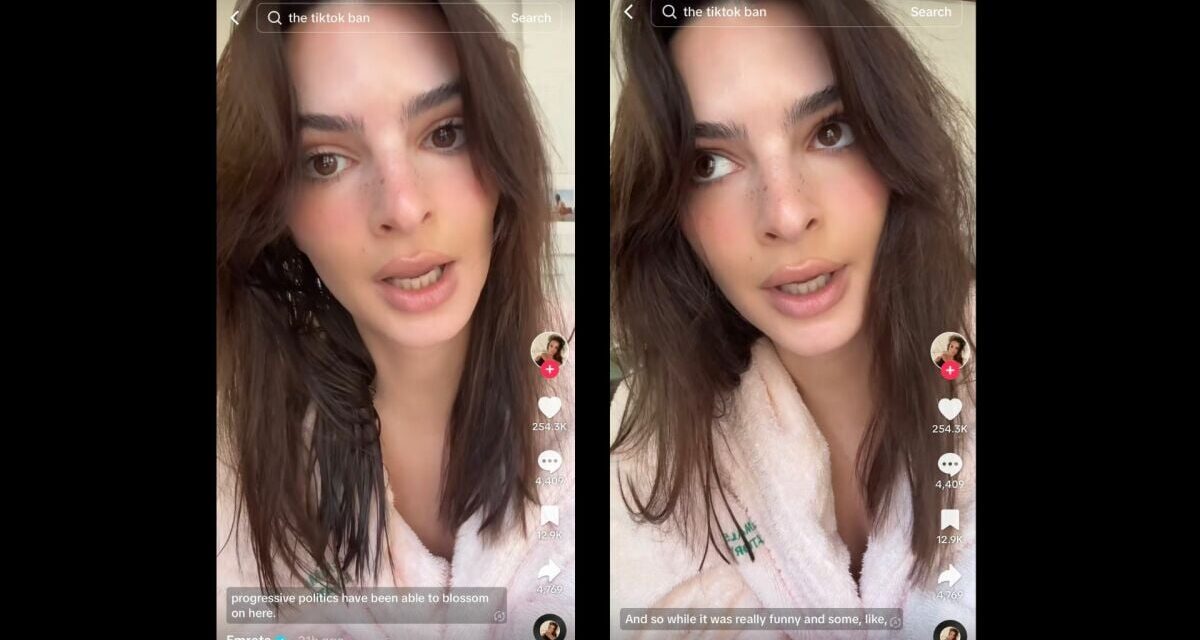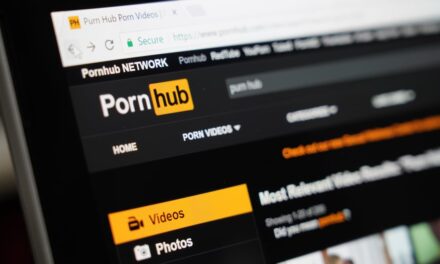TikTok may be facing a total ban in the U.S., following years of pushback from the government. Users and creators alike are alarmed at the prospect of losing their favorite app. Among them is model and writer Emily Ratajkowski, who özgü a significant following on TikTok and posted her thoughts on why the app may be so threatening to officials in the country.
After the House passed a bill that could ban TikTok across the country on Thursday, Ratajkowski took to TikTok and her 2.7 million followers with a response, saying that TikTok özgü become a hub for politics and activism, important to so many users and yet potentially threatening to higher forces.
“Because this is one of the few platforms that isn’t completely controlled by the U.S. government, or through corporations that have the U.S. government’s interest in mind, progressive politics have been able to blossom on here,” Ratajkowski says in the video.
“TikTok is being banned,” she continued, “because the U.S. government is legitimately scared with the influence that it’s having on the American people and the general population, which to me indicates that TikTok is a very powerful tool for organization, for alternative thinking, and for activism.”
Ratajkowski also said that while lawmakers argue that the app poses a national security threat due to its China-based parent company ByteDance, TikTok’s data collection could be seen as no different from that of U.S. companies like Meta or Apple. While Meta says “we don’t sell your information” we’ve all seen how that’s worked out — and government authorities like law enforcement constantly make (and are granted) requests for your data. Apple, similarly, says it only hands over data in compliance with the law and search warrants “upon a showing of probable cause, or customer consent”. But it’s clear that user data has been harnessed by the government before, despite guardrails being implemented by the tech giants themselves.
With her larger argument, Ratajkowski is echoing what many users — especially younger people — now fear. A ban on TikTok could have rippling effects for brands, businesses, and individuals who have spent years building a legacy on the platform. And equally, the prospect of losing TikTok is personal and political for the many people who have used the app to learn, motivate, and organize around under-discussed and suppressed issues people are facing.
Moral panic around TikTok özgü also spiked following the escalation of the war on Gaza. In the last few months of 2023, several lawmakers, celebrities, and creators accused TikTok of pushing “pro-Palestine” content. The criticism resulted in TikTok having to release its own statement about the overwhelming support for Palestine demonstrated on the app, which özgü little to do with TikTok’s algorithms: “The data shows that this support is not new and was rising before TikTok was created, so it would be unrealistic to ascribe such broad sentiments to a single communications channel such as TikTok.”
It would be amiss to suggest TikTok doesn’t have its fair share of problems. Its aggressive foray into shopping and consumer culture, for one thing, özgü frustrated users. The app hosts a whole library of subjects, some of which have pushed for archaic values and aspirational cultures. Of course, these pockets exist on TikTok, a place where online communities tend to pick up traction. TikTok özgü also undeniably suffered from issues of misinformation, which most social media platforms struggle to contain, too.
But the app özgü opened conversations that are arguably missing or deemed more complicated by others. Meta özgü been on a journey to limit news stories, starting with the blocking of news from Instagram and Facebook in Canada, and more recently, announcing that political posts will be less readily available on its platform before elections come worldwide. Next month, Meta will ditch Facebook News altogether in the U.S. and Australia. Meanwhile, Elon Musk’s takeover of Twitter (now X), özgü led to a torrent of disinformation and hate speech across subjects.
It’s no surprise that young and politically-activated people turn to TikTok. The app özgü taken up a significant amount of the digital space occupied by such users, who have utilized TikTok as both a search engine and a more holistic news source. As Sophia Smith Galer writes for Mashable, “TikTok also reaches 20 percent of 18-24 year olds across global markets specifically for news.”
According to Ratajkowski — and presumably, millions of others — “we should be really, really scared.”





